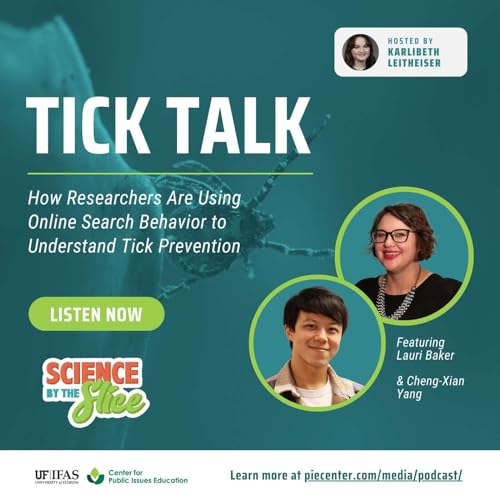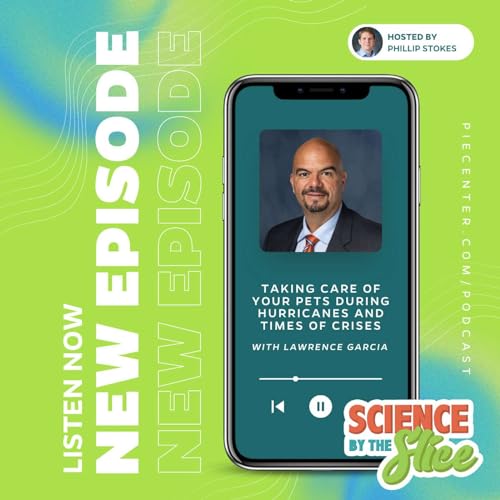We've made it to Season Four! We're beginning our fourth season of Science by the Slice as we have the past two seasons by looking back and looking forward. That is, revisiting clips from last season while examining one theme and then looking forward to what we have in store for 2024.
This episode incorporates the theme of patience. You’ll hear clips from season three while unpacking the intricate relationship between patience and life outcomes. Patience manifests in the fabric of our communities, influencing such topics as the resilience of our food and agricultural systems and land conservation. Then, you’ll hear about some of the upcoming topics we have planned for 2024.
Resources:
Hanushek, Eric A, et al. (2024). Can Patience Account for Subnational Differences in Student Achievement? Regional Analysis with Facebook Interests. National Bureau of Economic Research. https://doi.org/10.2139/ssrn.4574635.
Mischel, W, et al. (1989). Delay of Gratification in Children. Science, 244(4907) 933–938. https://doi.org/10.1126/science.2658056.
Schlam, Tanya R., et al. (2013). Preschoolers’ Delay of Gratification Predicts Their Body Mass 30 Years Later. Journal of Pediatrics, 162(1) 90–93. https://doi.org/10.1016/j.jpeds.2012.06.049.
Transcripts available here: https://piecenter.com/media/podcast/#transcript
Are you an educator? The Science by the Slice podcast aims to inform diverse audiences about important issues in agriculture, natural resources, and public health. Check out our learning guides that were created as an educational tool to facilitate discussions related to the topics presented in podcast episodes. Download the learning guides here: https://piecenter.com/media/podcast/learn/
Music "The Maison" by Blue Dot Sessions at https://freemusicarchive.org/music/Blue_Dot_Sessions/desjardins/the-maison/ Under CC BY license Attribution-NonCommercial 4.0 International (CC BY-NC 4.0 DEED), https://creativecommons.org/licenses/by-nc/4.0/
Music "Astrisx" by Blue Dot Sessions at https://freemusicarchive.org/music/Blue_Dot_Sessions/Bodytonic/Astrisx/ Under CC BY license Attribution-NonCommercial 4.0 International (CC BY-NC 4.0 DEED), https://creativecommons.org/licenses/by-nc/4.0/
Music "Ô Zéphyr" by Portron Portron Lopez at https://freemusicarchive.org/music/Portron_Portron_Lopez/De_Colre_Et_DEnvie/07__Zphyr/ Under CC BY license Attribution-NonCommercial-ShareAlike 4.0 International (CC BY-NC-SA 4.0 DEED), https://creativecommons.org/licenses/by-nc-sa/4.0/
 42 mins
42 mins 41 mins
41 mins 13 mins
13 mins 33 mins
33 mins Feb 28 202415 mins
Feb 28 202415 mins Dec 6 202330 mins
Dec 6 202330 mins 33 mins
33 mins 26 mins
26 mins
